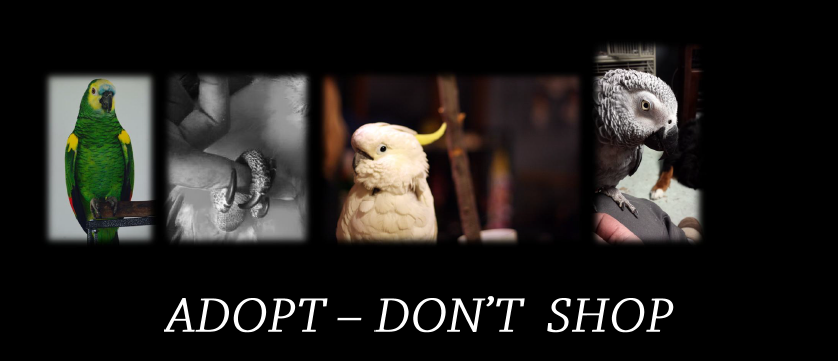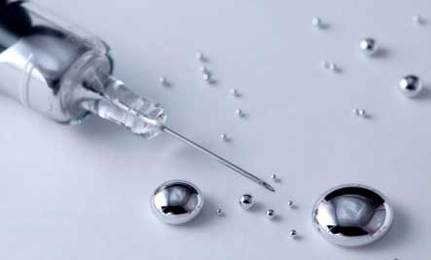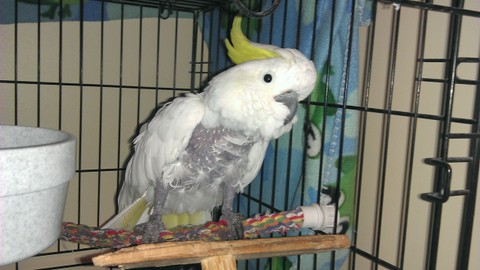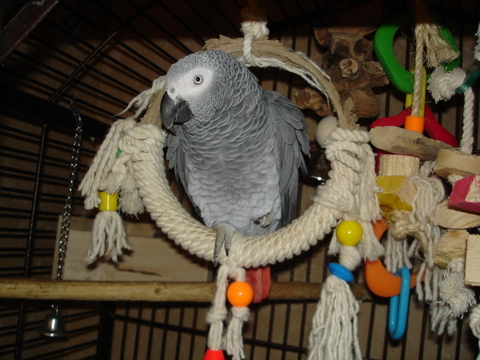Metal Toxicity
Brass is an alloy of copper and zinc. Both of these metals are potentially toxic to birds.
Brass padlocks are probably not a problem for cages of small birds who are unlikely to chew the padlock. However, they should be avoided around larger birds who are able to chew them.
There was a report recently in the Journal of Avian Medicine & Surgery of a hyacinth macaw who nearly died from zinc poisoning. He had destroyed 3 brass padlocks and had also chewed on the chrome cage wires (chrome also contains zinc).
Lead is also extremely toxic to birds. Common sources of lead include lead paint, lead fishing weights, curtain weights, lead frames of stained glass windows and tiffany lamps, foil from champagne bottles, lead solder, old pewter, lead batteries and weighted ashtrays and toys.
Copper is also potentially toxic to birds although avian toxicity from this metal is less common. Acidic foods stored in copper containers may leach out copper, and occasionally copper piping for water is a potential source of increased copper in the diet if the water is slightly acidic and has been allowed to remain in contact with the piping for some length of time. Allowing the water from the tap to run for a few minutes before filling the water dishes will prevent this problem.
Tin (not galvanized), steel and iron (not treated with antirust paints) are not toxic to birds.
Zinc is extremely toxic to birds. Sources include galvanized cage wire, clips or staples, bird toy snaps, zippers, keys, nails, plumbing nuts, nuts on animal transport cages, hardware cloth, padlocks, chrome, and some antirust paints, shampoos and skin preparations.




